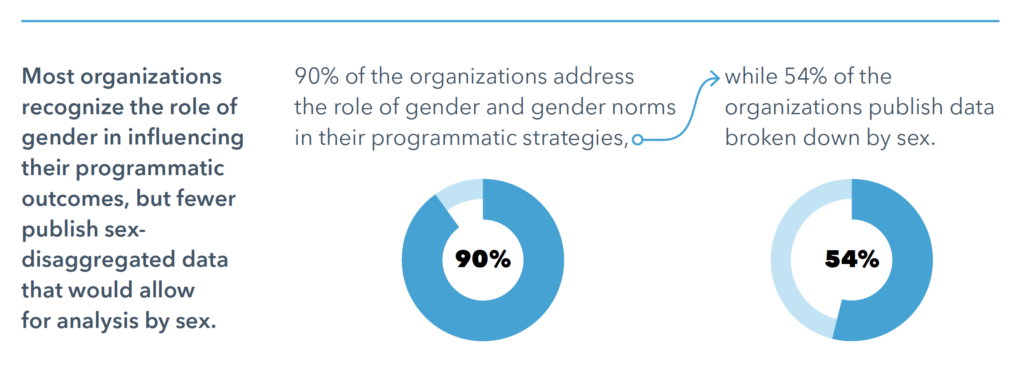Gender equality is a precondition for achieving the world’s shared ambitions of the Sustainable Development Goals by 2030, including delivering sustainable food systems. From production to marketing and consumption, gender, power and privilege are woven throughout the fabric of food systems. As a result, gender inequalities are both a cause and an outcome of inequitable food systems that contribute to unjust food access, production, and consumption.
Food system organizations can be leaders in creating a just and sustainable food system. One in which women’s roles move from being invisible to visible, where their voices are heard, and their leadership amplified. One where food system roles, responsibilities, opportunities, and choices are not predetermined by restrictive gender roles, and social and cultural norms and power imbalances are not entry barriers for many people.
The primary aim of the 2021 Global Food 50/50 Report is to catalyze faster progress towards this vision by enabling enhanced accountability driven by rigorous evidence. A second aim is to increase recognition of the role that gender plays in the food system for everybody — men and women, including transgender people, and people with nonbinary gender identities.
This Report presents measures of how well an initial sample of global food system organizations are acknowledging and addressing gender as a determinant of opportunity, access, and participation in the global food system. It shows that organizational commitment to gender equality is high. Over half of the organizations are transparent about their policies for shaping diverse, inclusive, and equitable working environments.

The data also suggest, however, that rhetoric may be used as a substitute for action. Organizational leadership — CEOs and board chairs — remains disproportionately male and dominated by European and North American nationals. In the face of multiple global crises, a global food system dominated by individuals and institutions in high-income countries forgoes essential talent, knowledge, and expertise.

The Report further finds that gender, as a key social dynamic that influences opportunity, access, and power in the global food system, remains under-appreciated, under-counted, and under-addressed.

The data in this inaugural report can equip leaders at all levels — from communities to workforces to boards — to take concrete action, drive change, and hold those in power accountable to their commitments to advance gender equality and transform food systems. A fairer, more gender-equal system will be best placed to end hunger, poverty, and inequality around the world.
Visit the Gender & Food Index to review the scorecard of each organization included in the 2021 Report.
Read about our Methods for data collection and validation here.
globalhealth5050.org
Contact: Sonja Tanaka, sonja.tanaka@globalhealth5050.org
ifpri.org
Contact: Jemimah Njuki, J.Njuki@cgiar.org